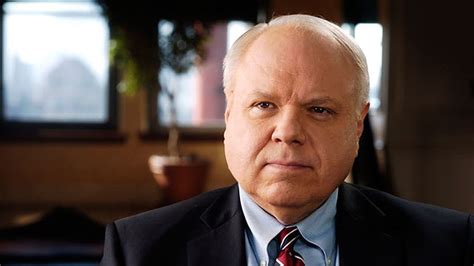A Quote by Bruce Bartlett
The growing inequality of wealth and income distribution is both a moral and economic problem. If the wealthy are unwilling to pay more taxes, then this is going to lead to spending cuts. And if you put off the table things like national defense, then you're going to end up cutting more and more out of programs that aid the poor. So, I think there are consequences to this idea that tolerance for inequality requires us to - to just do nothing to make the wealthy contribute a higher share of resources to fund the government.
Quote Topics
Aid
Both
Consequences
Contribute
Cuts
Cutting
Defense
Distribution
Economic
End
Fund
Going
Government
Growing
Higher
Idea
Income
Income Distribution
Inequality
Just
Lead
Like
Make
Moral
More
More And More
National
National Defense
Nothing
Off
Out
Pay
Poor
Problem
Programs
Put
Requires
Resources
Share
Spending
Spending Cuts
Table
Taxes
Then
Things
Think
Tolerance
Unwilling
Up
Us
Wealth
Wealthy
Related Quotes
If you're a wealthy heir with a trust fund, and you sell stocks, make your 10% gains since Donald Trump, and then you buy other stocks, you can avoid paying taxes. And if your accountant registers your wealth offshore in a Panamanian fund, like Russian kleptocrats do - and as more and more Americans do - you don't have to pay any tax at all, because it's not American income, it's foreign income in an enclave without an income tax.
If, for example, each of us had the same share of capital in the national total capital, then if the share of capital goes up it's not a problem, because you get as much as I do. The problem is that capital in capitalist countries is very heavily concentrated, especially financial capital. So then if the share of income from that source goes up, that actually exacerbates inequality.
Politicians like to talk about the income tax when they talk about overtaxing the rich, but the income tax is just one part of the total tax system. There are sales taxes, Medicare taxes, social security taxes, unemployment taxes, gasoline taxes, excise taxes - and when you add up all of those taxes [many of which are quite regressive], and then you look at how they affect the rich and the poor, you essentially end up with a system in which the best off 20 percent of Americans pay one percentage point more of their income than the worst off 20 percent of Americans.
Most people believe that inequality is rising - and indeed it has been rising for a while in a number of rich countries. And there is lots of talk and realization of this. It's harder to understand that at the same time, you can actually have global inequality going down. Technically speaking, national inequality can increase in every single country and yet global inequality can go down. And why it is going down is because very large, populous, and relatively poor countries like India and China are growing quite fast.
When it comes to the budget, we know that we shouldn't be cutting more on core investments, like education, that are going to help us grow in the future. And we've already seen the deficit cut in half. It's going down faster than any time in the last 60 years. So why would we make more cuts in education, more cuts in basic research? Nobody thinks that's a good idea.
Republicans favor tax cuts for the wealthy and corporations, but these had no stimulative effect during the George W. Bush administration, and there is no reason to believe that more of them will have any today. As for the idea that cutting regulations will lead to significant job growth, it's just nonsense. It's just made up.
I talked to a lot of employers who just are, are fearful of what's coming next out of Washington. It's all the spending, it's all the debt. It's their national energy tax, they want to call it cap and trade - more mandates, higher costs, more taxes. Their healthcare bill - more mandates, higher costs, higher taxes.






































